Afghanistan War, CIA Sponsored Terror, Civil Liberties, Criminalizing Dissent, Extraordinary Rendition, FBI Intrusion, Guantanamo, Habeas Corpus, Human Rights, Political Prisoner, Prison Industry, Prosecution of the Bush Administration, Supreme Court, Targeting Muslims, Torture
Podcast: Play in new window | Download
Updates:
——
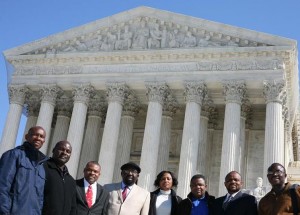
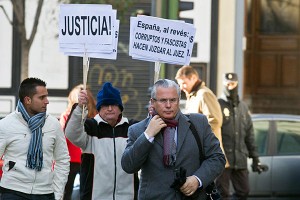
Universal Jurisdiction: Kiobel v. Royal Dutch Shell / Bush 6 Case In Spain
This week the US Supreme Court will decide if corporations could be held liable in U.S. courts for violations of international human rights law in the land mark case Kiobel v. Royal Dutch Petroleum. The case was brought by families of seven Nigerians who were executed by a former military government for protesting Shell’s exploration and development and is pushing to hold corporations accountable for human rights violations. The Supreme Court will also consider how the Alien Tort Statute Claim can be used the Kiobel case. A one sentence law that goes back to 1789 when the first judiciary act was brought in the United States. We’ve discussed this statute with several past guests including attorneys Peter Weiss and Rhonda Copeland who were instrumental in beginning the first cases in which human rights violations, taking place in other countries could actually be litigated in the United States.
We also discuss the recent amicus filing by a group of international human rights organizations and experts before the Spanish Supreme Court. The brief asks the Spanish Supreme Court to overturn a decision not to pursue a criminal case against six former officials from the Bush administration for their role in directing and implementing a systematic torture program. Past shows with Katherine Gallagher.
Attorney Katherine Gallagher:
- The Kiobel case has been in US courts since 2004.
- The claims were brought in the Southern District of New York, under a law from 1789, known as the Alien Tort Statute.
- This law allows non-US citizens to come into a US federal court and assert violations of the Laws of Nations or International Law.
- A recent precedence for this is Citizens United, what happened was that the Second Circuit ruled that corporations could not be held liable for these egregious human rights violations under the Alien Tort Statute.
- The question of corporate liability went up to the Supreme Court first.
- We had 2 judges from a 3 bunch panel in the Second Circuit suddenly come out in the fall of 2009 and say there is no corporate liability. That is the question that went up to the Supreme Court.
- Four other circuits had look at this question and they said of course corporations can be held as liable as an individual, a natural person.
- The Alien Tort Statute allows for a civil suit and civil liability rather than criminal liability.
- The key case from 1980 that CCR brought, the case of Filartiga, this case which the Supreme Court affirmed in 2004 as being on solid legal basis, claims by a Paraguayan, against a Paraguayan for actions that occurred in Paraguay.
- So its very strange that the Supreme Court was asking in a very broad fashion whether the ATS could apply to actions that occurred in another country. That is what the bulk of the cases brought under the ATS have been about.
- Some of the cases where the ATS is used are for some of the most serious violations. Cases of war crimes, crimes against humanity, torture, not your run of the mill case.
- What the justices seem to coalesce around was the issue of whether there’s an alternate forum. If the claims against Shell could have been brought in the UK or in the Netherlands, maybe they don’t need to be brought in the US.
- We’ve seen a trend in the last 20 years of other countries adopting stronger laws that allow for redress, and accountability, so we don’t have to be the world’s policeman.
- There have been 2 cases that percolated up in the last 4 years in Spain.
- The first is a widespread investigation of the torture program then Judge Balthazar Garzon. This is a case looking at torture in Guantanamo, and potentially in Iraq and Afghanistan, looking at the whole U.S. torture program. That case was brought on by 4 named plaintiffs.
- That case is very wide ranging, and willing to go up the chain of command as far as the evidence leads.
- There is a second case that was brought against specific U.S. individuals. They’re known as the Bush 6, including, Jay Bybee, John Yu, David Addington, Alberto Gonzalez. Six men who served as lawyers and argued to have essentially created both the legal structure that enabled the torture program, providing arguements for immunity and protecting participants of the torture program from accountability.
- Spain has a long and proud history of upholding International Law. Spain is where we had the case against Augusto Pinochet in the late 90s.
- We’ll be doing this as long as we need. We need to have accountability, its really critical.
Guest – Katherine Gallagher, Senior Staff Attorney at the Center for Constitutional Rights (CCR), where she focuses on holding individuals, including US and foreign government officials, and corporations, including private military contractors, accountable for serious human rights violations. Among the cases she has worked, or is working, on are international accountability efforts for U.S. officials involved in torture (Spain, Switzerland, Canada); ICC Vatican Officials Prosecution; Arar v. Ashcroft, Corrie v. Caterpillar, Matar v. Dichter, Saleh v. Titan, Al-Quraishi v. Nakhla and L-3, Estate of Atban v. Blackwater.
—————————————————————————————————
Civil Liberties, Criminalizing Dissent, FBI Intrusion, Habeas Corpus, Human Rights, Prosecution of the Bush Administration, Targeting Muslims, Torture, Truth to Power, War Resister
Podcast: Play in new window | Download
Updates:
—–
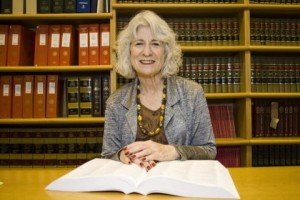

Lawyers You’ll Like: Attorney Nancy Hollander
In this week’s Lawyers You’ll Like series, we’re joined by attorney Nancy Hollander. Nancy has been a member and partner with Freedman Boyd Hollander Goldberg Ives & Duncan P.A. since the early 80s. Her practice is devoted to mostly criminal cases including those involved with national security. Ms. Hollander has also argued and won a religious freedom case in the US Supreme Court. She’s served as a consultant to the defense in a high profile terrorism case in Ireland – and she represents 2 prisoners at Guantanamo Bay Naval Base.
Attorney Nancy Hollander:
- I was a community organizer with JOIN, Jobs or income now.
- We organized Appalachian migrants to Chicago. I wrote a book that I co-authored with Todd Gitlin called Uptown.
- I became a photographer, I learned how to develop film in the basement of Jessie Jackson’s church. I was in Cleveland for a time and then came to New Mexico, became the Executive Director of the New Mexico Civil Liberties Union, then went to law school.
- I worked as a riveter in a football equipment factory.
- It looked like that whole began when I met with Vietnamese women in Indonesia 1964. I met with women from North and South Vietnam.
- We all met at the embassy, and I thought, that was odd meeting, and that was the beginning of my CIA file.
- I represent 2 people (in Guantanamo Prison) one is Mohamado Ould Slahi, he’s a Mauratanian citizen, he was there from almost the beginning.
- We won his habeas case, the judge ordered him almost immediately released.
- After ten years, the government said they didn’t have the preponderance of evidence to keep him.
- The government appealed, the case got remanded, and we’re essentially starting over.
- They changed what they accused him of continuously. He’s never been tried, he was tortured.
- The rule of law has become the law of changing rules.
- I got a security clearance and learned about SEPA and OFAC, the Office Of Foreign Asset Controls.
- We originally represented the Holy Land Foundation in its fight against the designated and some other civil litigation.
- They were charged and convicted of providing charity.
- The law is very fluid and lawyers have a lot of power. Our power is to make change and to create miracles in some cases. There have been something like 100 terrorism cases tried in New York alone since 9/11
Guest – Attorney Nancy Hollander has been a member of the firm Freedman Boyd Hollander Goldberg Ives & Duncan, P.A. since 1980 and a partner since 1983. Her practice is largely devoted to criminal cases, including those involving national security issues. She has also been counsel in numerous civil cases, forfeitures and administrative hearings, and has argued and won a case involving religious freedom in the United States Supreme Court. (see decision) Ms. Hollander also served as a consultant to the defense in a high profile terrorism case in Ireland, has assisted counsel in other international cases and represents two prisoners at Guantanamo Bay Naval Base. Nancy is co-author of WestGroup’s Everytrial Criminal Defense Resource Book, Wharton’s Criminal Evidence, 15th Edition, and Wharton’s Criminal Procedure, 14th Edition. She has appeared on national television programs as PBS Now, Burden of Proof, the Today Show, Oprah Winfrey, CourtTV, and the MacNeill/Lehrer News Hour.
—–
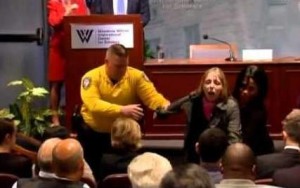
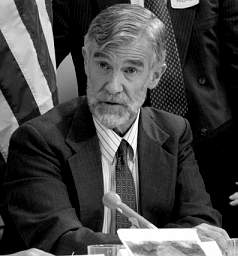
The Moral Challenge of ‘Kill Lists’ by Ray McGovern
The Obama Administration has conducted hundreds of drone strikes in several countries, killing civilians and a US citizen. Critics point out that as the Obama Administration assassinates its’ suspects, it also avoids the legal complications of detention. In last week’s New York Times, authors Jo Becker and Scott Shane expose the priest-like role of counter terrorist adviser John Brennan as he provides Mr. Obama with the moral justification for extrajudicial murder. The framing of John Brennan’s role of priestly adviser caught Ray McGovern’s attention. His recent article The Moral Challenge of Kill Lists, dissects the New York Times story.
Ray McGovern:
- There has been a geometric increase in the number of drone strikes against Pakistan and of course Somalia and Yemen.
- London based bureau for investigative journalism estimates that about 830 civilians including women and children may have been killed by drone attacks in Pakistan. 138 in Yemen, and 57 in Somalia. It’s incredibly naive to think that this helps in any way in the war on terrorism.
- This wonderfully insightful and dangerous New York Times article a week ago talked about the conundrum of aligning these activities with US legal and moral principles. Conundrum? That’s an impossibility.
- The Fifth Amendment prevents this sort of thing if you take the interpretation we’ve always had.
- As the New York Times article mentions 1 out of 30 assassinations that are known about just one escaped assassination and was brought before a court. It’s much easier to kill them.
- If you wanted to learn about al-Qaeda, don’t you think Osama Bin Laden could’ve told us some stuff about al-Qaeda?
- Any military aged male in the area of a “bad guy” is fair game.
- Maybe I can draw from my own experience in the CIA, I know about lists. I know that when there was a coup attempt in Indonesia in 1965, that there were lists given to the Indonesian authorities of communists. How many communists on that list? A million. How many were killed, were murdered? 500 thousand plus. How many were put in prison? The other 500 thousand.
- The drones are really accurate but the target information is notoriously inaccurate.
- I love Fordham and I hate to see the administration and the very wealthy trustees who have lots of money to give to Fordham, determine who comes in to give the commencement address.
- I think that you have to have some kind of personal involvement with innocent suffering. I think that you have to have some sense of the injustice others suffer to let your heart be touched by this direct experience.
- Obama’s fallen in with a rough crowd.
- I was attracted to getting outside of my Catholic walls. There’s a small church down in Washington DC called the Church of the Savior.
- I found out they were doing wonderful things like preventing housing from being gentrified so poor people can still live there. Healthcare, jobs, addictions, a hospice for people to sick to be on the street.
- There’s been one major change for the good in this country. That is Occupy.
- When you look for proof that Occupy has incredible potential, look no farther than what the president and the top senators thought necessary to inject into the NDAA on New Year’s Eve, which allows them to use the US Army of all things to wrap us all up without charge, without court proceedings.
Guest – Raymond L. McGovern, retired CIA officer turned political activist. McGovern was a Federal employee under seven U.S. presidents in the past 27 years. Ray’s opinion pieces have appeared in many leading newspapers here and abroad. His website writings are posted first on consortiumnews.com, and are usually carried on other websites as well. He has debated at the Oxford Forum and appeared on Charlie Rose, The Newshour, CNN, and numerous other TV & radio programs and documentaries. Ray has lectured to a wide variety of audiences here and abroad. Ray studied theology and philosophy (as well as his major, Russian) at Fordham University, from which he holds two degrees. He also holds a Certificate in Theological Studies from Georgetown University. A Catholic, Mr. McGovern has been worshipping for over a decade with the ecumenical Church of the Saviour and teaching at its Servant Leadership School. He was co-director of the school from 1998 to 2004. Ray came from his native New York to Washington in the early Sixties as an Army infantry/intelligence officer and then served as a CIA analyst from the administration of John F. Kennedy to that of George H. W. Bush. Ray’s duties included chairing National Intelligence Estimates and preparing the President’s Daily Brief, which he briefed one-on-one to President Ronald Reagan’s most senior national security advisers from 1981 to 1985.
—————————————————————————–
Civil Liberties, Criminalizing Dissent, Gaza, Guantanamo, Habeas Corpus, Human Rights, Prosecution of the Bush Administration, Supreme Court, Surveillance, Targeting Muslims, Torture, Truth to Power, War Resister
Podcast: Play in new window | Download
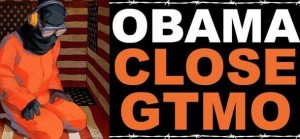
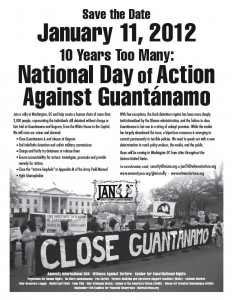
Ten Year Anniversary of Guantanamo Bay Prison
Co-host Michael Ratner and president emeritus of the Center for Constitutional Rights gives listeners an overview of the habeas corpus legal battles to close Guantanamo Bay prison and an in depth look at the corrosive effect the offshore prison has had on civil rights, and the U.S. Constitution. Despite the fact that the U.S. government has itself cleared more than half of these men for release, and despite President Obama’s promise on his second day in office to close Guantánamo within a year, it has been almost twelve months since anyone has been released.
This is the longest period of time that has elapsed since the prison’s opening without a single person being set free.The Obama administration has also extended some of the worst aspects of the Guantánamo system by continuing indefinite detentions without charge or trial, employing illegitimate military commissions to try some suspects, and blocking accountability for torture.
—-
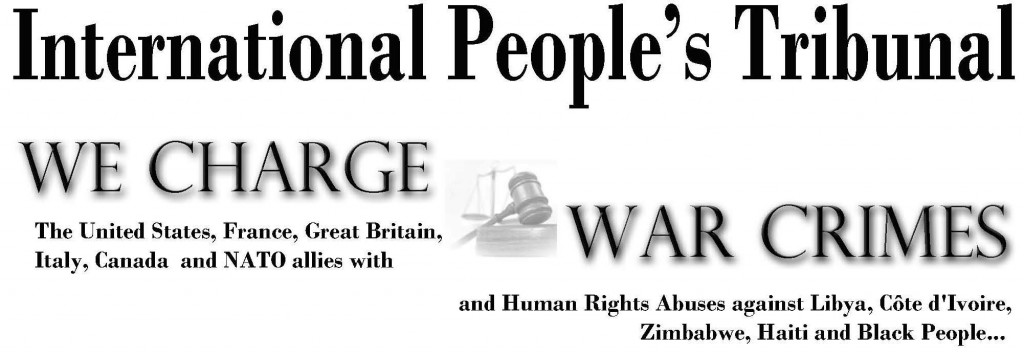
International People’s Tribunal on “War Crimes and Other Violations of International Law
International People’s Tribunal on “War Crimes and Other Violations of International Law” to be held on January 14, 2012 at 12 pm at Columbia Law School. The event will provide an excellent opportunity for students interested in gaining an understanding the theory and the practical application of international law in the real world.
Attorney Roger Wareham:
- The genesis of the tribunal began during the intervention in Libya.
- Back in May the December 12th movement always has a celebration of Malcolm X’s birthday, May 19.
- This is part an ongoing campaign to re-colonize the African continent.
- Libya was important to that for a number reasons. Libya has some of the best crude oil in the world that requires the least amount of production in terms of transforming it into gasoline.
- Col. Gaddafi stood for the proposition that there would be a United States of Africa.
- Libya had the highest standard of living on the African continent.
- What we hope to come out of this is fashion a petition to take before the International Criminal Court.
- The plan is we’ll going to take at least a 400 people strong delegation to the Hague in June to present a petition to the prosecutor, requesting they prosecute the heads of NATO, Britain, Canada, Italy, for war crimes.
- Saturday January 14, 2012 / Columbia University Law School / 435 West 116th Street / 718-398-1766 / iptribunal2012@gmail.com
Guest – Roger Wareham, lawyer and political activist of over four decades. He is a member of the December 12th Movement, an organization of African people which organizes in the Black and Latino community around human rights violations, particularly police terror. Wareham is also the International Secretary-General of the International Association Against Torture (AICT), a non-governmental organization that has consultative status before the United Nations.
—-

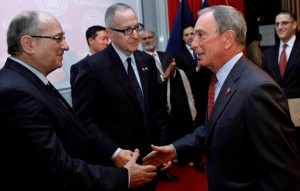
Cornell and The Technion of Israel To Build Campus On Governor’s Island
As many listeners may know, Cornell University is joining with Technion-Israel Institute of Technology in a plan to build a campus in New York City. Critics however, point out Technion’s involvement with the Israeli Defense Force in the development of repressive technology that would further perpetuate crimes against Palestinians. Through cooperative research with Israeli defense companies such as Elbit, Rafael, McGill and Concordia, Technion is involved in asymmetrical robotic warfare with faceless human targets who can be killed by remote control.
To talk more about this, we’re joined today by David Klein, a professor at California State University in Northridge and a member of the Organizing Committee of the U.S. Campaign for the Academic and Cultural Boycott of Israel.
Professor David Klein:
- It is a collaboration between Cornell University and Technion which is like Israel’s MIT.
- There’s a 350 million dollar grant from a philanthropist, which has been supplemented with 100 million dollars in public money.
- I’m a member of the Organizing Committee of the U.S. Campaign for the Academic and Cultural Boycott of Israel.
- The demands that we have are ending the occupation and colonization all Arab lands and dismantling the apartheid wall.
- Recognizing the fundamental rights of Arab / Palestinian citizens of Israel to full equality.
- Respecting and promoting the rights of Palestinian refugees to return to their homes and property as stipulated in UN resolution 194.
- Technion is deeply complicit with Israel’s military and provides the military with technology to carry out ethnic cleansing of Palestinians.
- Participants in a joint military and university program for science students, who will later be integrated into the Army’s research and development units, wear uniforms throughout their years of study.
- It’s particularly strong in developing robotic weapons systems, which include aerial drones, and unmanned combat vehicle technology.
- I think Bloomberg is supportive of the apartheid system in Israel. He wouldn’t view this as a problem like much of the rest of the world does.
- The crime of apartheid is an international crime against humanity.
- In addition to aerial drones, Technion makes the Black D9 Bulldozer, it makes the Stealth UVA Drone, which is a drone that can fly almost 3000km without refueling.
- It’s making something called the Dragonfly UVA mini-drone, which is a tiny drone with a 9 inch wingspan. It can fly into people’s bedroom windows and kill em.
- Technion is involved in asymmetrical robotic warfare with faceless human targets who can be killed by remote control.
- Israel is arguably the most racist country at this time, due to the apartheid system that it has.
Guest – David Klein, member of the Organizing Committee of the U.S. Campaign for the Academic and Cultural Boycott of Israel (www.usacbi.org), and is a professor of mathematics at California State University, Northridge (CSUN). He received his Ph.D. in Applied Mathematics from Cornell University. His professional interests include mathematical physics, climate science, and mathematics education in the public schools. He is the faculty advisor for the campus student groups, Students for Justice in Palestine and the CSUN Green Party. David Klein’s website
——
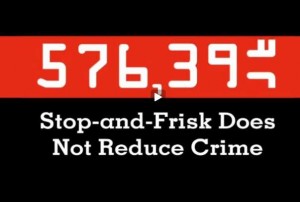

CCR Lawsuit: Stop and Frisk NYC
Last year, a federal judge rejected a move by the City of New York to stop a lawsuit filed by the Center for Constitutional Rights challenging the New York City Police Department’s Stop and Frisk policy. Judge Shir Scheindlin pointed out the seriousness of numerous claims that the NYPD disproportionately and illegally targeting communities of color. In 2009 New York City, a record 576,394 people were stopped, 84 percent of whom were Black and Latino residents — although they comprise only about 26 percent and 27 percent of New York City’s total population respectively. The year 2009 was not an anomaly. Ten years of raw data obtained by court order from the New York City Police Department (NYPD) show that stop-and-frisks result in a minimal yield of weapons and contraband.
Attorney Darius Charney:
- Stop and Frisk is a city wide epidemic. We’ve gone from 90 thousand in 2002 to 700 thousand this year. They’re stopping 2000 people a day, primarily young males of color but also females of color.
- There are really know criteria as far as we can tell. There are guidelines that have been laid out by the courts in the last forty years. The police don’t follow those guidelines. They’re suppose to reasonable suspicion of criminal activity.
- They’re stopping people for what’s called “furtive movements” whatever that means.
- The other one is “high crime neighborhood.” The court had ruled that this is unconstitional, you can’t use the basis of a high crime neighborhood to stop and search them.
- Yet again, the police are doing that hundreds of thousands of times a year.
- The two allegations we made is that the NYPD has a widespread policy and practice of stopping and frisking New Yorkers without reasonable suspicion which violates the fourth Amendment of the Constitution and then on the basis of race which violates the Equal Protection clause of the 14th Amendment of the Constitution.
- The blacker or browner that neighborhood is, the more stops that are going to be done in that neighborhood.
- The other part is the weapon recovery rate, the police department justifies this program by saying, we’re trying to get guns off the street.
- Last year in 2010, they stopped over 600 thousand people. The number of guns recovered in those 600 thousand stops was 1200 guns.
- Relief sought in class action suit: Outside independent oversight of the police department.
Guest – Darius Charney, senior staff attorney in the Racial Justice/Government Misconduct Docket. He is currently lead counsel on Floyd v. City of New York, a federal civil rights class action lawsuit challenging the New York Police Department’s unconstitutional and racially discriminatory stop-and-frisk practices, and Vulcan Society Inc. v. the City of New York, a Title VII class action lawsuit on behalf of African-American applicants to the New York City Fire Department which challenges the racially discriminatory hiring practices of the FDNY.
——————————————-
Civil Liberties, Habeas Corpus, Human Rights, Prosecution of the Bush Administration, Surveillance, Torture, Truth to Power
Podcast: Play in new window | Download
Updates:
—
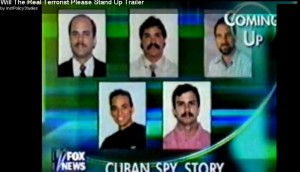
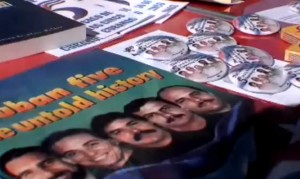
Saul Landau – Will the Real Terrorist Please Stand Up
We welcome back internationally known scholar and film maker, Saul Landau. We talk with Saul about his recent article, A Judge Grants Dubious Probation and his film, Will the Real Terrorist Please Stand Up? In his article, Saul writes about the release of Cuban Five member Rene Gonzalez who was released on parole in Miami for 3 years. Miami isn’t a good place for an admitted Cuban agent, Saul writes, and he’s a man who infiltrated the anti-Castro Brothers to the Rescue; his life would be in danger from Cuban exile terrorist groups. Earlier this year, Gonzalez had asked the court to allow him to return to Cuba where his family lives. As many listeners may remember the Cuban Five are five Cuban men who are in U.S. prison, serving four life sentences and 75 years collectively after being wrongly convicted in U.S. federal court. They were accused of committing espionage conspiracy against the United States.
Saul Landau:
- The classification of terrorist fall into 3 categories. The good, the bad and the crazy.
- The good terrorists are freedom fighters. Those are people still walking around Miami because they’ve directed their violence against Cuba, who is a bad guy.
- Then there are the bad terrorists and of course they’re all Muslims. Then there are the other terrorists who are neither good or bad, simply crazy like the guy who did the Oklahoma City bombing and this Norwegian guy who did this massacre.
- The idea in the film “Will The Real Terrorist Please Stand Up” is that people don’t know what the Cuban Revolution was and they don’t much about US policy. Ironically, Cuba is now showing this film in their high schools having found out their own students are ignorant about their own history.
- Cuba had very little recourse over terrorism for decades, other than to infiltrate the groups that were planning violence against Cuba and try therefore to impede their terrorist actions.
- The Cuban Five were looking for information that would help them stop bombings in Cuba.
- They were spying on Cuban exile groups that were based in south Florida.
- When the Soviets went away in 1991, Cuba had very little recourse in terms of economic survival other than tourism. As she began to get her tourism revved up, so to did the Cuban exiles in Miami start to level their guns; deterring tourists from going.
- Posada Carriles: We have interviews of him in the film, and of course he denies he did any of it in the New York Times.
- He gets honored, he got the keys to Hialeah, Florida for doing things he denies he has done. If he hasn’t done all these things, why would they honor him?
- Posada Carriles and Orlando Bosch hired two Venezuelans to plant bombs in an airplane bathroom, which would go off after the two bombers left the plane.
- The Venezuelans confessed they were hired by Posada and Orlando. The Venezuelan police arrested them. They both got out for weird reasons. Posada escaped with the help of a 50 thousand dollar bribe to the warden of the prison.
- When Posada got out he went to work for Col. Oliver North. His next job was financed by the Cuban American National Foundation, which was the heart of the anti-Castro lobby. Orlando Bosch died after getting honored at the University of Miami. Orlando Bosch was pardoned by George HW Bush.
- Rene Gonzales: Essentially she’s put a bulls eye on his chest.
- After the United States assassinates a U.S. citizen abroad because it is said he planning terrorist acts against the United States. Under that precedent would Cuba not have the same right to send assassins into Miami and gun a whole bunch of people who are Cuban citizens in the United States who are plotting against Cuba?
- People can screen the film at CinemaLibreStudio.com
Guest – Saul Landau, a senior fellow at the Institute for Policy Studies at the Berkeley Graduate School of Journalism, has produced more than 40 films in his career, most concerned with human rights. His latest documents 50 years of US-Cuba relations in which violent Cuban exiles–backed by the CIA–tried to dislodge Cuba’s government, and of five Cuban spies, now in US prisons, who tried to stop this US-sponsored terrorism.
——-
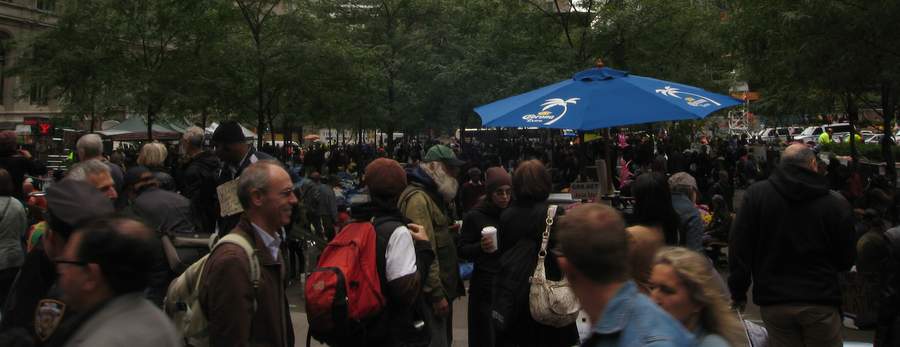
Occupy Wall Street: Liberty Square, New York City
We go now to hear a wide range of voices from One Liberty Plaza at the Occupy Wall Street encampment. During these interviews, the Occupy Wall Street movement remained a collective with people of many political persuasions. In this early period of austerity measures, they call themselves the 99% that will no longer tolerate the greed and corruption of the 1% and claim they’re using the revolutionary Arab Spring strategy to achieve results and encourage the use of nonviolence and civil disobedience.
Our own Heidi Boghosian spoke with activists, union workers, a lawyer and many more about where the movement is going, the support for it and a focus on demands such as pushing for the redistribution of wealth from the top 1 percent of Americans.
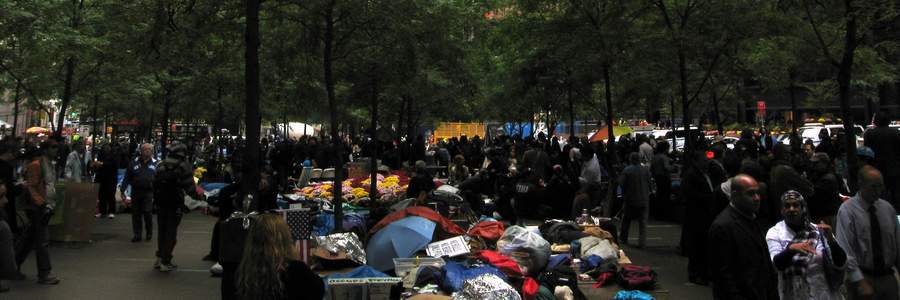
CIA Sponsored Terror, Civil Liberties, Criminalizing Dissent, Habeas Corpus, Human Rights, Prosecution of the Bush Administration, Surveillance, Targeting Muslims, Torture, Truth to Power
Podcast: Play in new window | Download
Updates:
——
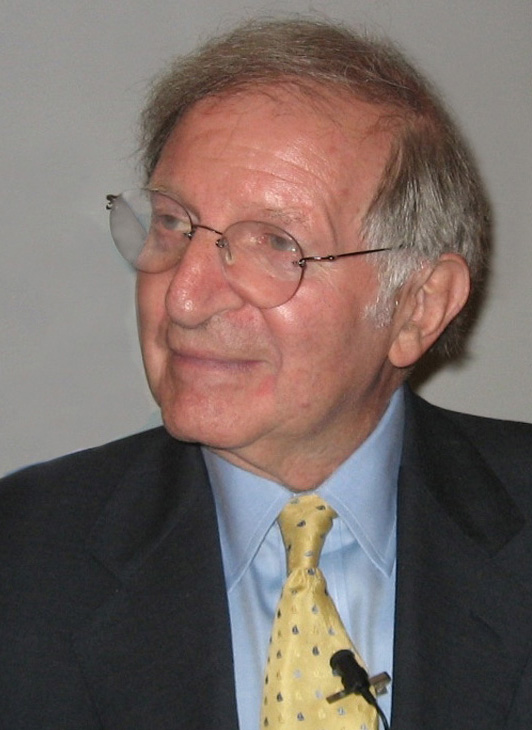
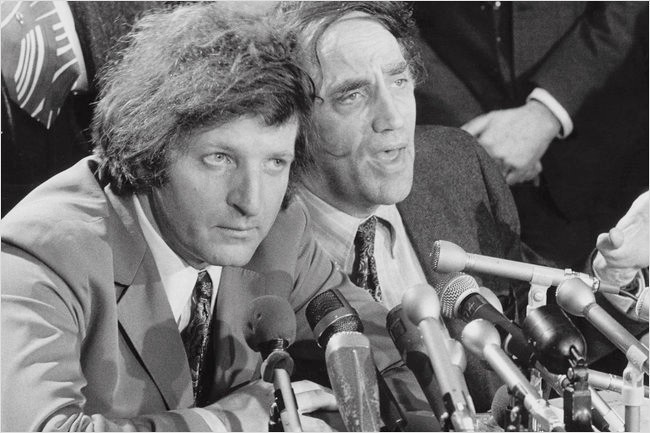
In Memory of Attorney Leonard Weinglass
Hosts remember one of the great civil rights attorneys, Leonard Weinglass from his early years as a lawyer in the Air Force to his big cases. Michael Smith shares a great anecdote. Len vigorously defended a black soldier and upset the Air Force brass. They sent him to Iceland for 2 years. Much later in the late fifties, he moved to Newark, NJ, set up a one man office and represented black people in police abuse cases.
The remarkable and heroic progressive lawyer Len Weinglass died on March 23. Among his cases were the Chicago 8, the Ellsberg case and the Cuban 5. He was our close comrade and will be missed by his friends and all those seeking a better world. – Michael Ratner.
——–
A Poem for Len Weinglass by Linda Backiel
Almost Ready
“I have everything almost ready for the spring,”
you said. Brush cut, brambles cleared, new trees
planted. A lop-sided smile flit across your silver
stubble beard, a late winter field momentarily lit
by a break in a fleet of migrating clouds.
click for more
——–
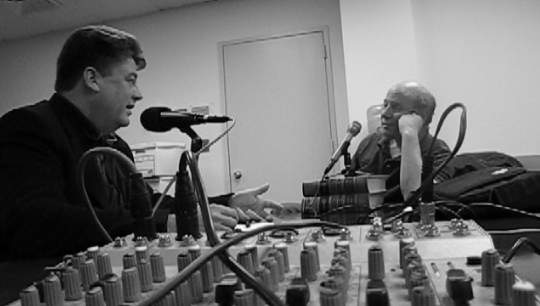
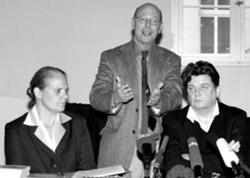
Universal Jurisdiction: Attorney Wolfgang Kaleck
Co-host Michael Ratner interviews attorney Wolfgang Kaleck, German civil rights attorney and General Secretary for the European Center for Constitutional and Human Rights. They discuss the effectiveness of Universal Jurisdiction cases. The cases that helped international human rights prosecutions. Specifically the cases in Argentina against corporations that profited from dictatorships and human rights abuses and how Argentina can be used as a model to bring cases against other powerful leaders or corporations. Optimism overcomes cynicism, Wolfgang says its not easy, it’s work bringing cases against the powerful of the world.
Attorney Wolfgang Kaleck:
- I have the privilege to work on behalf of Germans and Argentinian victims of the Dirty War between 1976 and 1983 in Argentina.
- The Argentinian cases and the Chilean cases were the most important phase in universal jurisdiction.
- We filed cases in Germany, Italy and France.
- The idea to file Argentinian and Chilean cases in European courts was not to try Argentinians and Chileans in Europe but to impose accountability in Chile and Argentina.
- That’s what people call the Pinochet Effect.
- In 2005 and 2006 when the amnesty laws were abolished. If you go to Buenos Aries now you will observe military junta tribes from Monday to Friday and you will police officers, military leaders, torturers, guards.
- At this point, special prosecutors and parts of the civil society are demanding an investigation and prosecution into crimes committed by corporations who aided and abetted the dictatorship, or who profited from the dictatorship.
- The history in Argentina, 30 thousand people disappeared, 100 thousand were tortured.
- The human rights movement in Argentina was so strong, that they maintained a certain presence, a certain public attention.
- For us, Argentina is like the blue print. They inspired the human rights movement not only in Europe
- I filed a case at Mercy Dispense because in Buenos Aires, 15 trade unionists were disappeared. We filed the criminal case in Germany against a German-Argentinian manager who had duel citizenship which allowed us to bring the case in Germany. Then we filed a case in the US, an alien tort claims which is still pending. We filed a case in Argentina which is still pending.
- One line is to blame the torturers and the torturer leaders, we want to talk about why these human rights violations have been committed. Why the Argentinian military took the decision to oppress their populations and our explanation is that they wanted to install a political and economic system which needed the extermination of the trade unionists.
- Actually to demand accountability and do these investigations is trauma work. Society that hasn’t dealt with its past has some problems in the present. Argentina is worth studying as an example.
- Universal Jurisdiction is showing its limits. So far it was very difficult to bring cases against the powerful of the world.
- The suspicion that the criminal justice system is just another tool of the powerful against the powerless,
- We have to try to bring cases against the powerful, Russian, China, the US, or Sri Lanka or Israel, who all undertake actions to avoid prosecution.
- We are very optimistic that some investigation will be carried out in Spain but some people are over-pessimistic, because even now, we achieved that several former US officials, or from the CIA or from the Army, or politicians can’t travel anymore, without running the risk to be arrested.
- We achieved something, I’m also not satisfied from it but still its more than we thought possible.
- President Bush wanted to go to Switzerland.
- It’s always an argument against those cynical people who say nothing is possible. Yes there is, something is possible. We do have to struggle to maintain this, the whole international criminal justice system is at stake.
Guest – Attorney Wolfgang Kaleck, a German civil rights attorney. He is also the General Secretary for the European Center for Constitutional and Human Rights. On November 14, 2006, Kaleck sought criminal prosecution charges in German court against a number of US officials and military personnel in connection with alleged human rights abuses at the prison facilities at Abu Gharib and Guantanamo Bay on behalf of eleven plaintiffs. Approximately 30 human rights activists and organizations participated as co-plaintiffs
Civil Liberties, Habeas Corpus, Human Rights, Prosecution of the Bush Administration, Surveillance, Targeting Muslims, Truth to Power
Podcast: Play in new window | Download
Updates:
—-
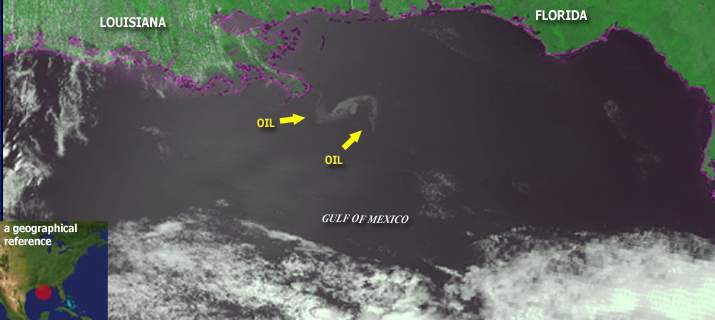
Update on BP Oil Disaster in the Gulf of Mexico
There are reports that nearly 200 thousand gallons of crude oil is spilling into the Gulf of Mexico each day as engineers work to cap the well head. Meanwhile an oil dispersant is deployed on the water surface to break up the oil slick before it reaches sensitive estuaries and shoreline. On the edge of what human engineering can accomplish, BP says it would use a giant, 100-ton dome-like device placed over the wellhead that might collect oil gushing out of the well.
Jackie Savitz:
- 200 thousand gallons per day, possibly 10 times more than that. It’s been gushing for almost 2 weeks.
- May take another week to stop, not guaranteed. Back up plan could take months.
- Gulf of Mexico: rich area biologically, a lot of our shellfish come from there. Many of the species that make their home in the Gulf are endangered, such as sea turtles, North Atlantic Right Whale, Bluefin Tuna, Snapper, Grouper
- In many cases, these animals are using the Gulf as a nursery. We may never fully know the impacts on populations of these animals. Fishing ban.
- Why do they let companies like BP drill in these dangerous circumstances that can pose these types of impacts without a plan? The public was convinced on offshore drilling by 3 myths. 1. Lower the price of gas at pump. 2 Energy Independence. 3. Drilling was safe.
- Why would we let these companies gamble with our lifestyle with no actual return.
- We’re looking at a potential reset moment. Politicians respond to public sentiment.
- We’re working toward a ban on exploratory drilling. This was an exploratory well.
Guest – Jackie Savitz, Senior Campaign Director for Oceana’s Pollution Campaigns. Savitz has shaped and led campaigns and projects dealing with global warming pollution from ships, mercury contamination of fish, and cruise ship pollution among other issues. Savitz has a background in marine biology and environmental toxicology combined with more than fifteen years of policy analysis experience through which she has developed expertise on a variety of pollution issues involving toxic contamination, water pollution and air pollution
————
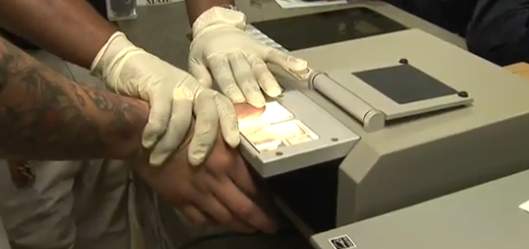
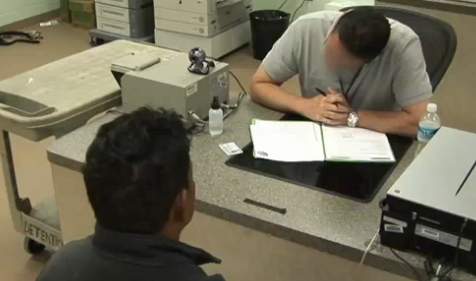
ICE Media Spin / Immigration Law Movement
Center for Constitutional Rights staff attorney, Sunita Patel joins us today to give an update on the recent six-page internal memo from United States Immigration and Customs Enforcement (ICE) that was leaked to the press. The memo was a response to civil rights groups Uncovering the Truth on ICE and Police Collaboration, but specifically aiming at their campaign of week long rallies in 14 cities. The week of advocacy was launched on Tuesday in conjunction with a FOIA lawsuit filed in the Southern District of New York by the National Day Laborer Organizing Network, the Center for Constitutional Rights and the Immigration Justice Clinic of Benjamin Cardozo School of Law to demand records relating to the Secure Communities program.
Sunita Patel:
- ICE launches media offensive against community organizations. Exposed: DHS plans to publish Op Eds by the head of ICE.
- DHS interface with local law enforcement – incentives to racial profile to determine status that could lead to: Non citizens to stay in jail even if there is police misconduct or unlawful arrest
- We want more information so communities can make reasonable decisions.
- FOIA lawsuit requests information on “Secure Communities” Program, a finger printing system operating inside jails. To be deployed to all jails in US by 2013.
- We want to stop these collaborations with local law enforcements, they make the community less safe and less secure.
Guest – Sunita Patel, Center for Constitutional Rights Staff Attorney, she is involved with racial profiling, immigrant rights and other human rights litigation. Prior to her position at CCR, she held a Soros Justice Fellowship at The Legal Aid Society, Immigration Law Unit in New York where she represented immigrant detainees in removal proceedings and worked with criminal justice and human rights groups to create independent community oversight for detention operations through public accountability boards
———————
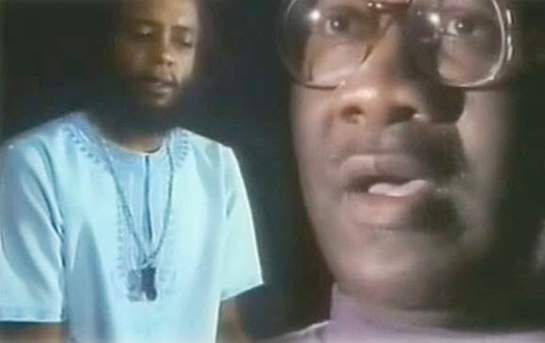
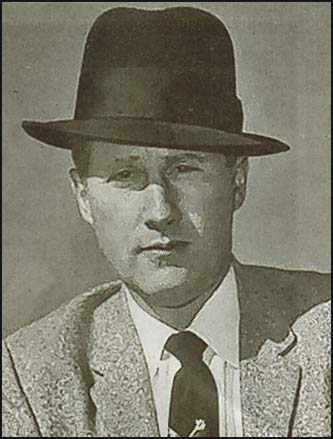
Omaha Two / Black Panthers
We talk today with Claus Walischewski, a representative of Amnesty International in Germany. Claus has been working with Amnesty International following and investigating the case of 2 former Black Panthers Ed Poindexter and Mondo we Langa (David Rice). The case is known as the Omaha 2. Amnesty International has found that the two men were unjustly convicted of murder and have been in prison since the 1970s. Amnesty has called for a retrial or release for these men.
Claus Walischewski:
- We don’t call them political prisoners because in the US you can have a fair trial.
- They were both Black Panthers in Omaha in the 1970s.
- The police answered a 9/11 call and went to a vacant building, there was a bomb in a suitcase, the police picked it up, it detonated, and the policeman was killed. The police thought it was the Black Panthers.
- Information that the FBI were working COINTELPRO in Omaha during this time.
- An individual named Dwayne Peak was arrested for the crime, and named the two Black Panthers.
- When he saw the 2 men and was asked if they were involved, he said “no.”
- The 9/11 call was not Dwayne Peak’s voice, it’s the voice of a much older man, not a 15 year old.
- Analysis has shown it’s not the same voice, still no re-trial. Caught and arrested in 1970, Poindexter 62, Mondo 67. I’ve visted them 10 years ago, they’re both very educated, no threat to anybody.
Guest – Claus Walischewski, a representative of Amnesty International
—————————————————





















